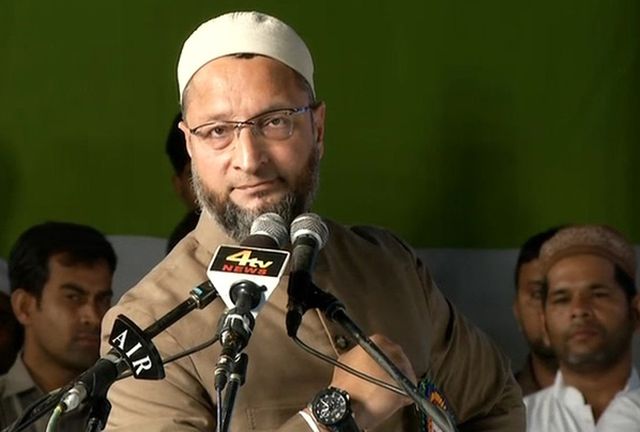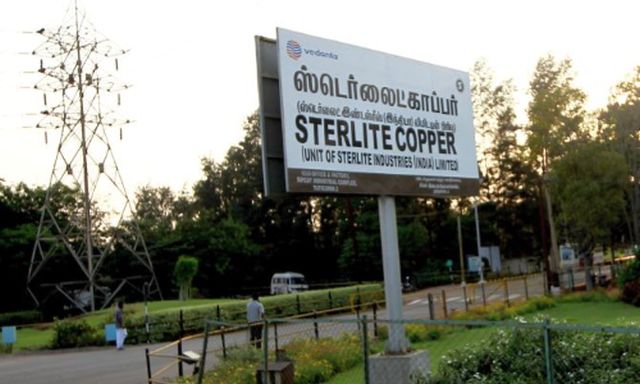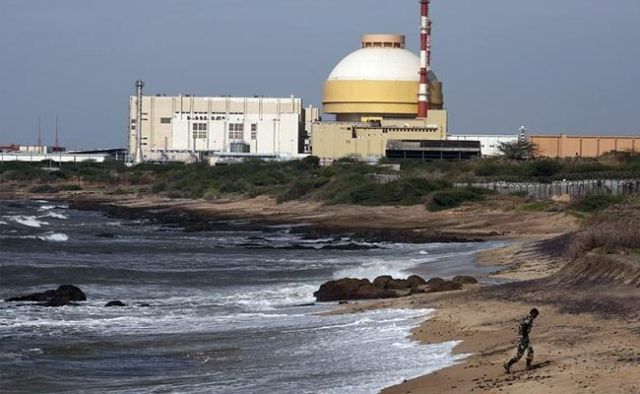
by admin | May 25, 2021 | News
 By Gowtham K
By Gowtham K
Chennai: Bihar elections has surely given the All India Majlis-e-Ittehadul Muslimeen (AIMIM) renewed confidence as the party a sizeable number of seats. The Muslim-centric party is now preparing to contest in the Tamil Nadu assembly elections next year.
After successfully contesting in the elections in Bihar, AIMIM chief Asaduddin Owaisi had said that his party would not contest only in West Bengal and Uttar Pradesh, but also in the region where the MIM can become the voice of the voiceless.
Speaking to The News Minute, Vakeel Ahmed, the Tamil Nadu State President of the AIMIM, said that the party contest about 25-30 seats.
”We will contest approximately 25 to 30 seats. In north Tamil Nadu, we have a stronghold. In Madurai, Krishnagiri, Vellore and Tirupattur we are getting good support. We had contested from the Vaniyambadi seat last time’ he added.
He said, “A survey is underway to identify where all we can fight and win.”
MIM supremo Asaduddin Owaisi said that his party has not finalized the number of seats it will be contesting as yet.
When asked about a possible alliance in Tamil Nadu, he said, “The political equations in the state will be decided by the state unit of the party.”
Speaking about a possible alliance in Tamil Nadu, Vakeel Ahmed said, “We’re in talks with some political parties. The AIADMK is not even an option as it’s in an alliance with the BJP. A third front is also a possibility. We are in talks, everything will be revealed at the right time.”

by admin | May 25, 2021 | Corporate, Corporate Buzz, News
 New Delhi : In a set-back to Vedanta, the Supreme Court on Monday refused to order the re-opening of its Sterlite Copper Smelting plant located in Tamil Nadu as it set-aside the National Green Tribunal’s (NGT) December 15 order on the grounds of jurisdiction.
New Delhi : In a set-back to Vedanta, the Supreme Court on Monday refused to order the re-opening of its Sterlite Copper Smelting plant located in Tamil Nadu as it set-aside the National Green Tribunal’s (NGT) December 15 order on the grounds of jurisdiction.
Setting aside the NGT order on maintainability, a bench of Justice Rohinton Fali Nariman and Justice Vineet Saran asked Vedanta to approach the High Court and since the Thoothukudi plant has been locked up for quite some time, they could urge the High Court Chief Justice for an expeditious hearing and interim relief.
The plant was shut down permanently on May 28, 2018, when the state government had ordered the Tamil Nadu Pollution Control Board (TNPCB) to seal and “permanently” close the plant in the wake of protests over pollution concerns.
The protests had turned violent, resulting in the death of 13 people in police firing on May 22-23 in Tuticorin, officially called the Thoothukudi port city.
The top court verdict came on the TNPCB’s plea against the December 15, 2018, NGT order directing it to give its consent.
The grant of consent by the state pollution control board was subject to the satisfaction of certain conditions by Vedanta.
The TNPCB had in the course of arguments asserted that the copper smelting plant was the cause of near irreversible ground water pollution and thus could not be allowed to resume operation.
On the other hand, Vedanta had described as “political” the decision to put the plant under the lock.
Vedanta had contended that the high level ground water pollution was not limited just to Thoothukudi alone, and that similar situation existed in other parts of the state.
—IANS

by admin | May 25, 2021 | News, Opinions, Politics
 By Amulya Ganguli,
By Amulya Ganguli,
There is little doubt that in the wake of M. Karunanidhis death, Tamil Nadu will enter an uncertain, even rocky, phase. It may take some time for the sense of disquiet and foreboding to become apparent. There may even be a period of relative calm as Karunanidhis chosen heir, his younger son, M.K. Stalin, assumes charge of the Dravida Munnetra Kazhagam (DMK) party.
But the reprieve is likely to be the calm before the storm. By the time the next assembly election is due in 2021, the dark clouds of the rivalry between the two brothers, Stalin and M.K. Alagiri, may well threaten the DMK’s smooth functioning. The only silver lining for the party will be the rival All India Anna DMK’s (AIADMK) perceived weakness as a challenger. It is no secret that after the death of the AIADMK’s guiding star, Jayalalithaa, the party has not been able to get its act together despite its formal hold on the levers of power.
Be it Chief Minister E.K. Palaniswami or Deputy Chief Minister O. Panneerselvam, neither has the aura of a winner. They have little charisma and even less administrative capacity. Moreover, by initially denying a burial place for Karunanidhi in Marina beach where the graves of Annadurai, M.G. Ramachandran and Jayalalithaa are located, the two AIADMK leaders revealed a petty mentality.
It is obvious that singly or together, they are unable to fill the void created by Jayalalithaa’s death. There is every possibility, therefore, that the AIADMK will lose the 2021 election while the DMK will romp home. Before that, the DMK is expected to fare well in the parliamentary polls of 2019, probably with the Congress bringing up the rear. But whatever the outcome, the focus will continue to be on the Stalin-Alagiri rivalry.
There will also be another point of interest. It is about the extent to which the Dravidian movement will be affected by the deaths of the two stalwarts, Jayalalithaa and Karunanidhi, within eight months of one another. The movement is known for its atheistic, anti-Hindu and anti-Hindi orientation. Of all the other major regional parties of south India — the Telugu Desam Party and YSR Congress of Andhra Pradesh, the Telangana Rashtra Samithi of Telangana and the Janata Dal-Secular of Karnataka — the DMK and the AIADMK of Tamil Nadu have stood out, till now, for their uncompromising rationalism which owes its origin to Ramaswami Naicker, better known as Periyar (1879-1973) who began his speeches with the invocation: “There is no God. He who invented God is a fool. He who propagates God is a scoundrel. He who worships God is a barbarian.”
There has undoubtedly been a dilution of this stridency in recent years when both the DMK and the AIADMK have teamed up with the Bharatiya Janata Party (BJP) which is known for its championing of the Hindu cause. The AIADMK is believed to be moving closer to the BJP at present to compensate for its weakness as a political force while the DMK has been close to the Congress for the last decade-and-a-half.
However, the question is whether Stalin has the capability to fill Karunanidhi’s shoes to keep the DMK afloat during the turbulence of the expected sibling rivalry and the challenge posed by a possible AIADMK-BJP combine. Although the BJP has always been a marginal player in Tamil Nadu, it has tested the political waters in the state in the past in the company of minor parties like film star Vijaykanth’s Desiya Murpokku Dravida Kazhagam (DMDK) and former Union minister S. Ramadoss’s Pattali Makkal Katchi (PMK) without making much headway.
Even then, the BJP must be looking forward to making its presence felt in the state in the present uncertain scenario where a political vacuum has been created by the deaths of two towering personalities. The film stars, Rajanikanth and Kamal Haasan, too, have sensed an opportunity in the present situation to launch their political careers although they appear to be unable to make up their minds as to which of the two Dravida Kazaghams is closest to their line of thinking.
Anecdotal evidence suggests that Rajanikanth is tilting towards the AIADMK and Kamal Haasan is more favourably disposed towards the DMK. However, they may also be considering forming their own parties with Kamal Haasan having already fired the first shot by constituting the Makkal Needhi Maiam. But their ideologies are vague and do not seem to have much to do with the kind of aggressive anti-Hindi worldview which the DMK and the AIADMK once espoused.
Arguably, India has changed from the time of the anti-Hindi agitation in Tamil Nadu in the 1960s which made Jawaharlal Nehru promise that English will continue to be used as long as the non-Hindi-speaking states want. Thanks to Bollywood, Hindi is now much more widely understood and spoken although any attempt to push it by the pro-Hindi lobby in North India is bound to be strongly resisted as could be seen when Hindi signboards were removed from the Bengaluru metro stations.
But it will nevertheless be fair to say that the Dravidian movement today is far from what Periyar said and did. Tamil Nadu, therefore, can be said to be entering unchartered social and political territory.
(Amulya Ganguli is a political analyst. The views expressed are personal. He can be reached at amulyaganguli@gmail.com)
—IANS

by admin | May 25, 2021 | News, Opinions, Politics
 By V. Jagannathan,
By V. Jagannathan,
Chennai : Muthuvel Karunanidhi was one of the last links to the Dravidian movement that ushered in the rise of backward classes in politics and the end of Congress rule in Tamil Nadu five decades ago on the plank of social justice.
A five-time Chief Minister, the 94-year-old Karunanidhi, who strode the public life of Tamil Nadu like a colossus, also played a key role in national politics when he aligned with Indira Gandhi in 1971 and reaped rich rewards in elections.
But he staunchly opposed the Emergency of 1975-77 during which his government was dismissed on corruption charges. He was banished to the opposition ranks till the death of his friend-turned-foe and iconic film hero M.G. Ramachandran or MGR in December 1987.
Under Karunanidhi, the DMK occupied a prime position in the UPA governments at the Centre in 2004 and 2009 and earlier in the NDA government under Atal Bihari Vajpyee, an alignment that surprised many given the party’s Dravidian moorings.
He was a wily politician who succeeded his mentor C.N. Annadurai or ‘Anna’ as Chief Minister in 1969 and kept a stranglehold on the party and government. He remained the President of the DMK for nearly 50 years, a rare feat in any democratic country.
Always sporting dark glasses, which became his trademark identity, and in later years a yellow stole, which critics said was against the atheism he preached.
With the death of his arch rival J. Jayalalithaa in 2016 and his departure now, Tamil Nadu is left with a void.
Born in Tirukkuvalai in the erstwhile Thanjavur district on June 3, 1924, Karunanidhi was a multifaceted personality — journalist, playwright, script writer — whose fiery dialogues as an iconoclast in films unleashed changes in Tamil Nadu’s social scene.
He joined the Dravidian movement as a teenager under the tutelage of the late social reformer ‘Periyar’ E.V. Ramasamy and Anna.
‘Kalaignar’, as Karunanidhi was called for his proficiency in arts and literature, fashioned theatre and cinema in a way that gave a fillip to the Dravidian movement and the rise of DMK as a major pole in Tamil Nadu.
Karunanidhi’s political fortunes rose when Anna broke away from the DK to float the DMK in 1949. The box office hit of Tamil movie ‘Parasakthi’ for which he wrote the script and a ‘rail roko’ agitation in Kallakudi near Tiruchirapalli made him known throughout the state.
He ascended to the DMK throne and the Chief Ministership following the death of party founder Annadurai in 1969.
Karunanidhi had the party in his strong grip till the end despite presiding over two major splits and being out of power continuously between 1977 and 1989.
Born in a poor Isai Vellalar (a backward caste) family, he was named Dakshinamurthy by his god-fearing parents Muthuvel and Anjugam. He later changed that to Karunanidhi, a Tamil name shorn of any Brahminical or Sanskrit tinge.
He also took part in the anti-Hindi agitations of 1937-40 and published a handwritten newspaper ‘Manavar Nesan’ (Friend of Students) and later formed the first student wing of the Dravidian movement, Tamil Nadu Manavar Mandram.
The anti-Hindi agitation was revived by the DMK in 1965, leading to massive anti-Congress sentiments amid much violence.
Karunanidhi also published ‘Murasoli’, a monthly which grew to become a weekly and the DMK’s official daily. Last year it celebrated its platinum jubilee.
He contested his first Assembly election in 1957 from Kulithalai successfully and since then has not lost any of the 13 elections he contested.
His fortunes gained further strength when the DMK won the 1967 elections and Annadurai made Karunanidhi the Minister of Public Works.
After Anna’s death in 1969, Karunanidhi became the Chief Minister. He led the DMK to a landslide win in 1971.
Bad times started soon after. Perceiving the popularity of movie hero and party leader MGR as a future threat to him, Karunanidhi began sidelining him and ousted him in 1972.
MGR floated the AIADMK that took power in 1977. He cultivated the Congress well — sharing liberally the Lok Sabha seats while retaining his hold on the Assembly — to effectively consign the DMK to the opposition benches.
DMK’s fortunes revived in 1989 when it won handsomely assisted by a split in AIADMK, with one faction led by its founder’s widow Janaki Ramachandran and the other by Jayalalithaa.
However, in 1991, the DMK government was dismissed in the wake of heightened activities in Tamil Nadu of Sri Lankan Tamil Tigers whose vocal supporter he was. After Rajiv Gandhi’s assassination by a LTTE suicide bomber in May 1991, the AIADMK under Jayalalithaa swept to power.
The DMK suffered a second split in 1993 when Karunanidhi saw fiery speaker Vaiko as a threat to his son M.K. Stalin’s ascendancy in the party and expelled him.
After that it was a see-saw battle with people choosing DMK and AIADMK alternatively. In 2006, the DMK was voted back to power for its populist promises.
In 2011 Karunanidhi promised more, but the DMK lost the battle. In 2016 too, it suffered the same fate.
A staunch opponent of Congress and its dynastic rule during earlier days, Karunanidhi later changed tact and paved the way for his progenies’ progress within and outside the party.
He brought his sons — through his second wife Dayalu – M.K. Alagiri and M.K.Stalin — into the party. Alagiri became Union Minister while Stalin was declared the political heir. However Alagiri was dismissed from the party later for anti-party activities.
Karunanidhi made Kanimozhi, his daughter by his third wife Rajathi, a Rajya Sabha member.
After the death of Murasoli Maran, his nephew, conscience keeper and the party’s face in Delhi, Karunanidhi got the former’s second son Dayanidhi Maran a Cabinet post in the central ministry in 2004 and 2009.
With coalitions becoming the norm at the Centre, the DMK started siding with BJP and Congress to get cabinet berths.
It was the Sarkaria Commission which first stamped Karunanidhi as corrupt in the matter of allotting tenders for the old Veeranam water project.
Though Karunanidhi was jailed several times during his long political innings, what shocked many was his midnight arrest by the Jayalalithaa regime in 2001 on corruption charges.
His wife Dayalu and daughter Kaimozhi were questioned by the CBI over corruption charges.
When the Sethusamudram Canal Project got mired in controversy, Karunanidhi shocked the nation by wondering aloud whether Lord Rama was an engineer to build bridge across the sea.
Karunanidhi donated his home at Gopalapuram to a trust to convert it into a hospital for poor after his and his wife Dayalu’s lifetime.
Karunanidhi is survived by his two wives Dayalu and Rajathi, sons M.K. Muthu, Alagiri, Stalin and M.K. Tamilarasu and daughters S. Selvi and Kanimozhi and grandchildren.
—IANS

by admin | May 25, 2021 | Corporate, Corporate Buzz, News
 Mumbai : Three sets of equipment for the Kudankulam Nuclear Power Project (KNPP) in Tamil Nadu have been shipped to India, KNPP’s Russian state-run equipment suppliers and technical consultants Rosatom said on Friday.
Mumbai : Three sets of equipment for the Kudankulam Nuclear Power Project (KNPP) in Tamil Nadu have been shipped to India, KNPP’s Russian state-run equipment suppliers and technical consultants Rosatom said on Friday.
The equipment, shipped out by Atomenergomash, the machine-building division of Rosatom, includes moisture separator-reheaters and high pressure heaters for KNPP unit 3, as well as spare parts for the scheduled maintenance of reactor coolant pumps at the already commissioned units 1 and 2, a Rosatom South Asia statement said here.
Three sets of moisture separator-reheaters for the power hall of the third unit have been shipped to India. These are designed for drying and reheating of moist steam and the equipment is included in support systems assuring turbine unit functioning, Rosatom said.
Two high pressure heaters for the turbine hall of the third unit of KNPP have also been shipped.
“The welded vertical apparatus is intended to feed water heating through condensation of steam,” the statement said.
“The total weight of the equipment for KNPP unit 3 is more than 1,000 tonnes. In total, there will be eight sets of moisture separator-reheaters and high pressure heaters.”
Besides, spare parts shipped for the reactor coolant pumps of the functioning units 1 and 2 include bearings, thrust rings and electromagnets. These are used to pump water around the primary circuit to remove the heat generated in the reactor core, the statement added.
The Kudankulam project envisages the construction of six reactors of 1,000 MW capacity each, the first two of which have already been commissioned. Four other units are in various stages of implementation or planning.
—IANS




